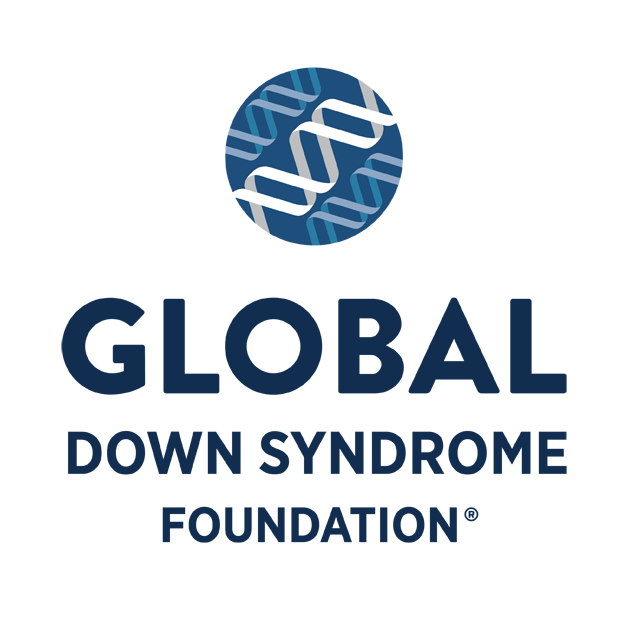Medical Resources & Research
In our lifetime, the single most dramatic change effected by our community has been the astounding improvement of the health of people with Down syndrome. Through the caring innovation of medical professionals, the typical lifespan of an individual with Down syndrome now approaches 60 years of age, the average for all people. Equally important, advancements in cardiology, nutrition, the behavioral sciences, and more have opened a high quality of life for people with Down syndrome.
Some communities are fortunate to have Down syndrome clinics or programs nearby. To find the one nearest you, visit our clinic listing page.
AAP Health Care Information for Families
You can print a checklist for your child’s age, to take with you to your pediatrician here:
- Checklist – prenatal
- Checklist – birth to 1 month
- Checklist – 1 month to 1 year
- Checklist – 1 year to 5 years
- Checklist – 5 years to 13 years
- Checklist – 13 years to 21 years
You can also print the Down Syndrome Growth Charts, updated by the CDC in November 2015
- Boy, Head circumference, Birth to 36 mos
- Boy, Length, Birth to 36 mo
- Boy, Weight, Birth to 36 mos
- Boy, Weight for Length, Birth to 36 mos
- Girl, Head circumference, Birth to 36 mos
- Girl, Length, Birth to 36 mos
- Girl, Weight, Birth to 36 mos
- Girl, Weight for Length, Birth to 36 mos
- Boy, Height, 2 to 20 years
- Boy, Weight, 2 to 20 years
- Girl, Height, 2 to 20 years
- Girl, Weight, 2 to 20 years
The GLOBAL Medical Care Guidelines for Adults with Down Syndrome provide first-of-its-kind, evidence-based medical recommendations to support clinicians in their care of adults with Down syndrome. This life-changing resource as published in JAMA covers 9 topic areas deemed critically important for the health and well-being of adults with Down syndrome and outlines critical future research needs.
NDSC is proud to be a key supporter of GLOBAL’s work to bring these to clinicians and families. When you visit the GLOBAL webpage you can download the full guidelines, the guidelines toolkit (a great checklist to take to your appointments), and read more about the authors & workgroup.
Find the guidelines here

The NDSC Medical and Scientific Review Committee review medical information and research announcements that have been presented to the National Down Syndrome Congress (NDSC) to ensure that they are scientifically sound.
For Researchers:
All requests to the NDSC to disseminate medical and scientific research recruitment materials will be reviewed by the NDSC Medical and Scientific Review Committee. Please submit the required information on the following form. Only submittals that provide all the required information will be reviewed by the Committee. The Committee will try to provide a response to the submitter within 30 days of submitting the request. If you have any questions, please contact NDSC at info@ndsccenter.org.
Requests to NDSC to Share Medical Research (Form)
For Participants:
The following medical research projects have been reviewed by the NDSC Medical and Scientific Review Committee and approved to be acceptable for participation.
- Assessing Autonomy in Health Care Decision Making Adults with Down Syndrome, MGH Institute of Health Professions, open to Adults with Down syndrome. For more information see the research flyer. Contact: jpearce@mghihp.edu
- Parent Survey to Develop a Measure of Maladaptive Behavior for Down Syndrome (BIDS-Phase 2), Cincinnati Children’s Hospital, Department of Developmental and Behavioral Pediatrics, open to children with Down syndrome ages 2 to 17 years old. For more information see the research flyer. Contact: dsresearch@cchmc.org
- Barriers to Service for Infants with Down syndrome, Boston University, open to children with Down syndrome less than 5 years old. For more information see the research flyer. Contact: buicl.studies@gmail.com
- Play to Move, Augment Therapy/University of California Santa Cruz, open to children ages 5 to 18 years old with Down syndrome. For more information see the research flyer. Contact: nulagana@ucsc.edu or crosby@ucsc.edu
- Assessment of the Sleep Care Priorities of Adolescents & Young Adults with Down Syndrome, open to youth ages 13 to 21 years old with Down syndrome. For more information see the research flyer. Contact: PageS@pennmedicine.upenn.edu
- Neurocognitive and quality of life outcomes in individuals with Down syndrome and acute lymphoblastic leukemia, we are recruiting caregivers of individuals with Down syndrome and no history of childhood cancer. The age range for individuals with Down syndrome is 1 to 34; however, we are most interested in caregivers of younger children at this time (age 5 and under). For more information see the research flyer. Contact: DSCOG2@stjude.org or 1-833-591-0724
The National Task Group on Intellectual Disabilities and Dementia Practices
The NTG is a not-for-profit organization charged with ensuring that the interests of adults with intellectual and developmental disabilities who are affected by Alzheimer’s disease and other causes of dementia – as well as their families and friends are taken into account.
